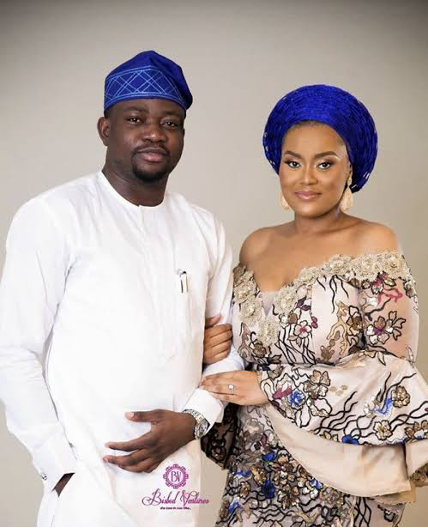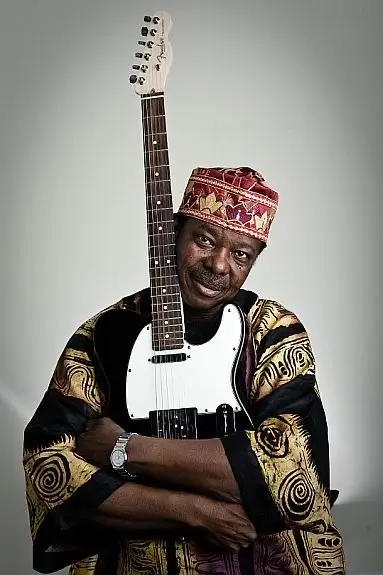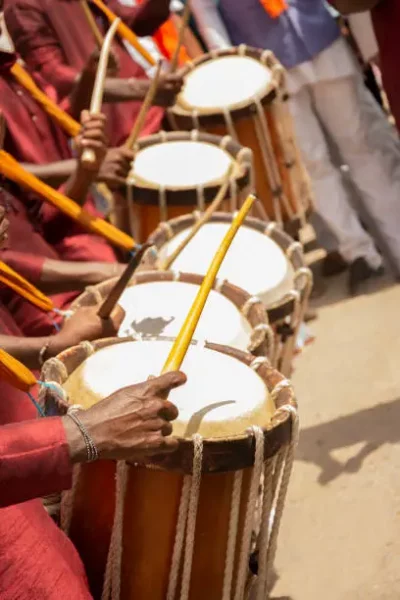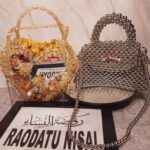DiscoverYoruba.com is your one-stop for embracing Yoruba culture, entertainment, and history unfolding.
Marriage in African societies is not just between two people; it is a union of families, traditions, and legacies. We had a thought; if there’s wife material, what makes a man-husband material? When asked this question, many ladies are quick to say six-foot, six-pack, six-figure, tall, handsome, and all the physically attractive attributes. And it’s totally okay to want the most handsome of features but let’s dig a little deeper here and get into the African logic.
In the Yoruba community, the expectations are loud because marriage is not just a personal milestone but the responsibility of all. A man in a Yoruba community must possess some qualities that mean the stability and prosperity of the home, and this comes from the respect of the community for the cohesion of family and heritage.
While society changes the concept of husband material with the times, a very great number of people keep as foundational what the African logic has outlined in choosing life partners. In this article, we have compiled some of the most important characteristics that make a man a “Family Man” or “Husband Material”, both from the traditional Yoruba point of view and in the more modern expectations.
Ẹ jẹ́ ká bẹ̀rẹ̀.

The Concept of Husband Material in African Logic
In many African societies, marriage is a cornerstone of community life, and the success of a marriage is often tied to the character and capabilities of both partners. The term “husband material” describes a set of traits and qualities that make a man suitable for marriage, particularly from the perspective of fulfilling his roles and responsibilities within the home and the larger community.
The concept is deeply rooted in traditional gender roles, whereby men are looked upon to provide for, protect, and be the leading characters. African logic, conditioned through a background of communal living, emphasizes the ability of a man to ensure stability and prosperity for his household. He is responsible not only to his nuclear family but also to his extended family and, in some cases, the village or the community.
The concept of husband material, therefore, gets more vital inputs from the values of tradition and ẹ̀bí (family) in Yoruba culture. A Yoruba man is supposed to be the lifeblood of the family unit, he must carry on with the expectations of the culture while trying to make the marriage good. His suitability as a husband is often gauged by the elders during the introduction, in terms of upbringing, moral character, and ability to provide.
While these expectations may have their origins in tradition, they still hold relevance today, albeit with modern dynamics shifting this perception of gender roles. All the same, the very core among them—responsibility, respect, and leadership—remain central to the concept of husband material in African and Yoruba culture.
Traits of a Husband Material in Yoruba Culture
In Yoruba culture, the qualities of husband material are deep-rooted in tradition, family, and communal living. A man should have a combination of practical capabilities, emotional intelligence, and social responsibility that will make for a harmonious and thriving household. The following are detailed descriptions of the traits defining a husband material in Yoruba culture.
Olupese (Provider)
The Yoruba man is expected to be the breadwinner for his family, ensuring that their financial and material needs are catered for.
Significance: A husband material shows he can keep a home together, that his wife and children will not go hungry, that they will be clothed, and that the children will go to school.
Cultural Expectation: A man’s financial preparedness is assessed during courtship. Bride price and participation in family events prove his worth.
Olùdábòbò (Protector)
A man who is a husband material must protect his family, not only physically but also emotionally and socially.
Significance: It is his utmost duty to protect his family’s well-being and reputation.
Practical Examples: Defending his wife and children in disputes, saving them from ridicule in society, and maintaining peace in the house.

Olùdarí (Leader)
Leadership quality in a man is an attribute of a husband material. According to Yoruba culture, a husband is supposed to be the head of the household (olórí ilé) who should guide the family with wisdom and justice.
Significance: It insinuates that leadership is about informed, balanced decisions and not about dominance.
Cultural Expectation: He leads the home with strength and wisdom.
Ọmọlúàbí (Person of Good Character)
The concept of ọmọlúàbí is rather central to the ideal Yoruba husband material. As we know, a person of character is full of respect, humility, truthfulness, and kindness.
Cultural Expectation: Respect towards his wife and her family members, patience under undesirable conditions, and good moral example.
Ìfẹ́ ẹbí (Love for Family or Being Family-Oriented)
The Yoruba attach great importance to family, and a husband material should hold dear his nuclear and extended families.
Significance: He should be able to hold a good relationship within the family and contribute toward communal harmony.
Practical Examples: Taking care of relatives in need, participating in family ceremonies, and providing a warm atmosphere at home.
Religious or Spiritual Leadership
Spirituality is a strong cornerstone in the life of Yoruba people, and a husband material is expected to lead his family in matters of faith and morality.
Significance: A spiritually upright man ensures a morally guided home.
Practical Examples: Emphasizing the importance of prayer, teaching of morals, values, and integrity in everyday life.
Ẹni tó gbàdúrà àti iṣé pọ̀, kò ní yọ ṣòfo
Meaning: The one who combines prayer with hard work will not fail.
Emotional Intelligence
The ability to handle emotions and promote understanding is an important quality a man who is a husband material should possess.
Qualities: Empathy, effective communication, and self-awareness.
Practical Application: Being able to listen to his wife’s problems, resolving conflicts without violence, and being emotionally supportive.
These qualities show a balance that a man should have to be a husband material in the Yoruba culture: a provider and protector, yet an empathetic leader; of good character and a respectful partner. He is strong for his family and community, ensuring that his values keep peace and prosperity within the home. By doing this, he holds on to tradition, yet still meets the demands of modern dynamics.
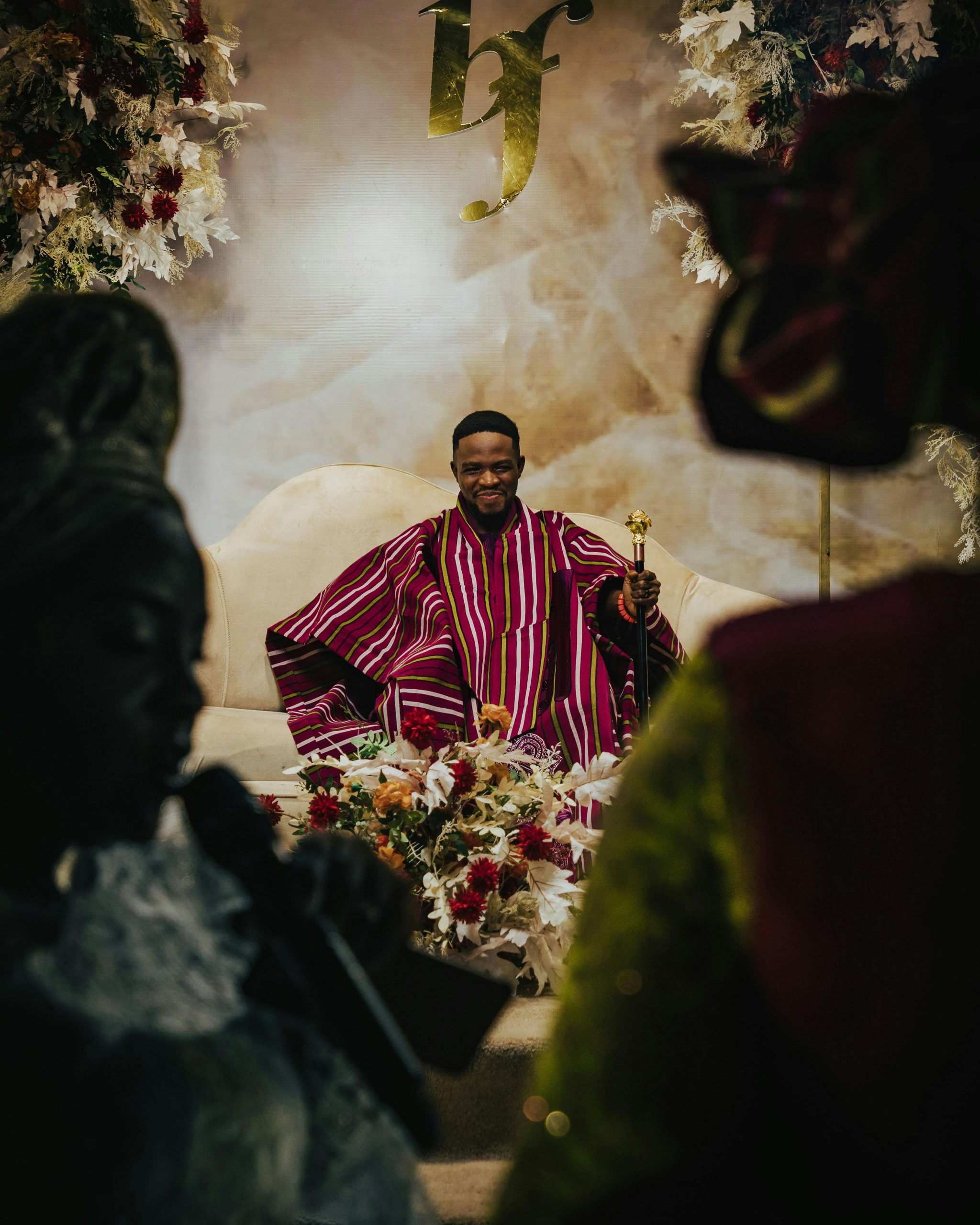
Balancing Traditional Expectations with Modern Realities
As society changes, so does what is expected from a husband material. Whereas the traditional Yoruba values remain central in family life, the modern world brings new dynamics to the table, challenging and reconfiguring these age-old norms. The balance between tradition and modernity is key for men who seek to be considered husband material in today’s world.
Financial Partnership over Sole Provision
The Yoruba tradition often puts the burden of financial provision squarely on the husband, while many modern relationships have moved more toward partnership.
Traditional View: Men were seen as breadwinners, while women managed the home.
Modern Shift: Nowadays, it is more likely that women will also have careers which contribute a great deal to the family’s purse.
Balanced Approach: Every home has its arrangements. It can be with the man as the sole provider or a partnership where the husband fully supports his wife’s career aspirations, creating a dynamic team that keeps the family financially stable.
Shared Leadership in the Home
The traditional role of the husband as the sole decision-maker is giving way to more collaborative approaches.
Traditional View: The husband was regarded as the unquestioned leader (olórí ilé), with ultimate authority over household decisions.
Modern Shift: Many modern couples go by a shared leadership model wherein both of them have an equal say in the decisions that concern the family.
Balanced Approach: A husband materialises leadership not by dominance but by fostering open communication, consulting his wife, and making decisions that benefit the entire family.
Emotional Openness and Vulnerability
Traditionally, Yoruba men were often raised to suppress their emotions and reflect strength and stoicism. However, this has changed in modern relationships, which value emotional openness.
Traditional View: The emotional reserve of a man was considered to be his strength and a form of control.
Modern Shift: To be emotionally articulate-even vulnerable- is considered today the hallmark of strength and maturity.
Balanced Approach: A modern husband material feels it important to share his feelings, listen actively to his wife, and foster emotional intimacy. This deepens the bond between partners and builds a resilient relationship.
Equal Respect in Marriage
The Yoruba culture demands respect in marriage, but these values have now been taken a notch higher to include mutual respect between the married pair.
Traditional View: As much as respect was encouraged for women, traditional gender roles often placed men in a dominant position.
Modern Shift: Equity in marriage can be well exercised in that both spouses pursue their goals, make decisions, and share responsibilities.
Balanced Approach: A husband material respects his wife’s individuality, supports her ambitions, and embraces a partnership where both can thrive equally.

Unified Perspective
A unified perspective is needed to blend the wisdom of Yoruba culture with the realities of modern life. If we all can respect our roots while adapting to changing times, we can create marriages that are both grounded in tradition and enriched by modern values. With this yardstick, we can build homes with love, respect, and functional partnership.
Conclusion
The ideal husband material in Yoruba culture combines tradition, character, and adaptability in a delicate balance. From being a provider and protector to emotional intelligence, down to respect for women, these qualities show the essence that will be put into making a harmonious and resilient family. As much as the traditional values of the Yoruba people emphasize leadership, integrity, and family-oriented living, modern relationships call for partnership, emotional openness, and shared responsibilities.
Ultimately, a true husband material is not defined by his looks or ability to meet traditional expectations or modern demands but by his commitment to creating a nurturing and balanced home.
By embracing the wisdom of Yoruba traditions and adapting to evolving societal norms, he honours the past while building a future grounded in love, respect, and mutual growth.
What makes a husband material in your perspective? We would love to know your take.

